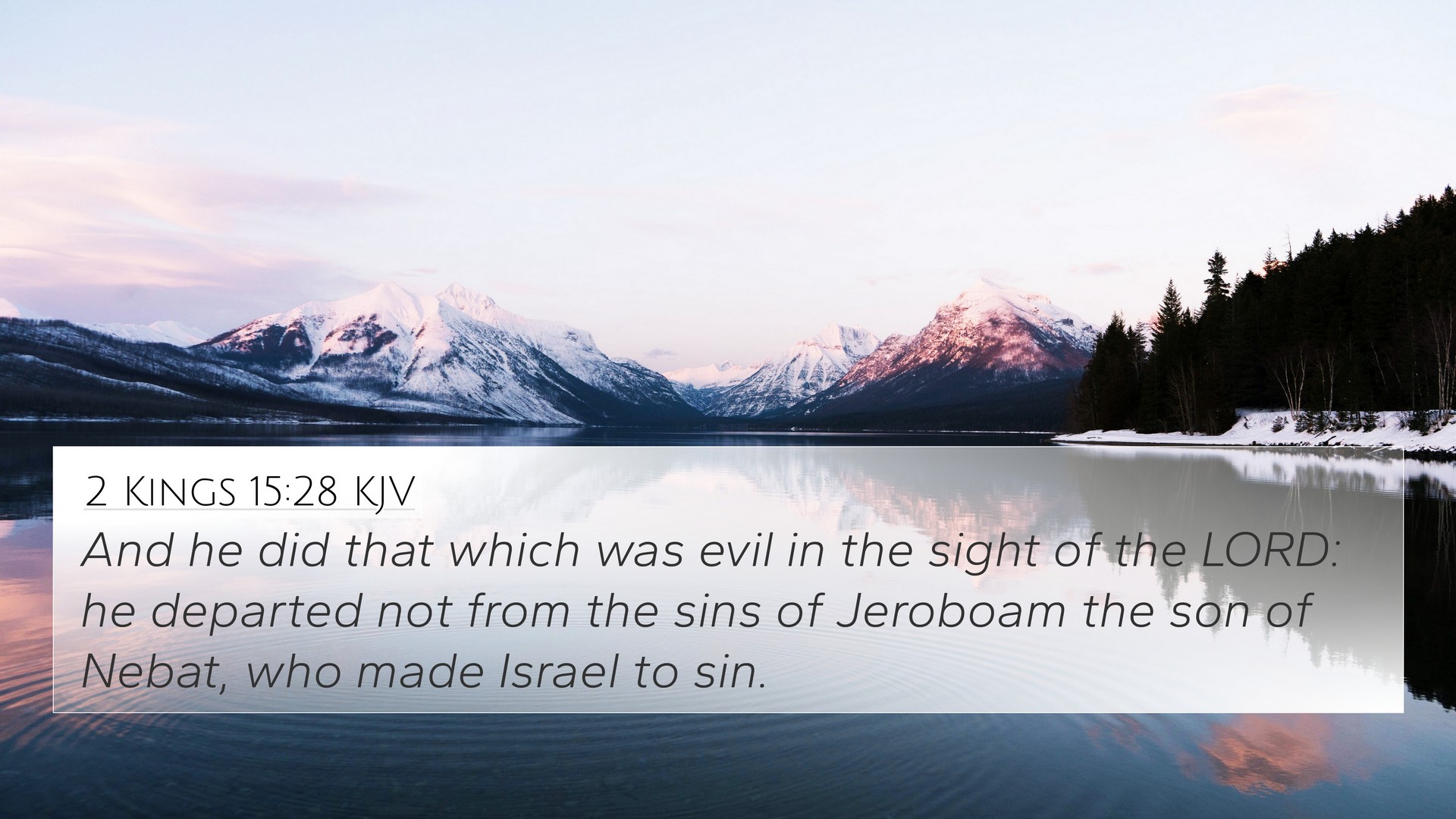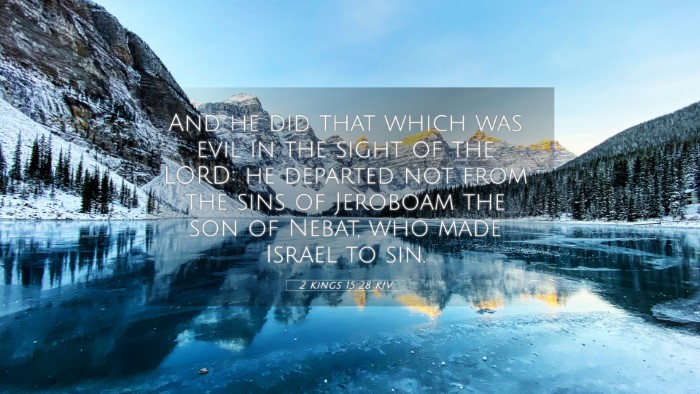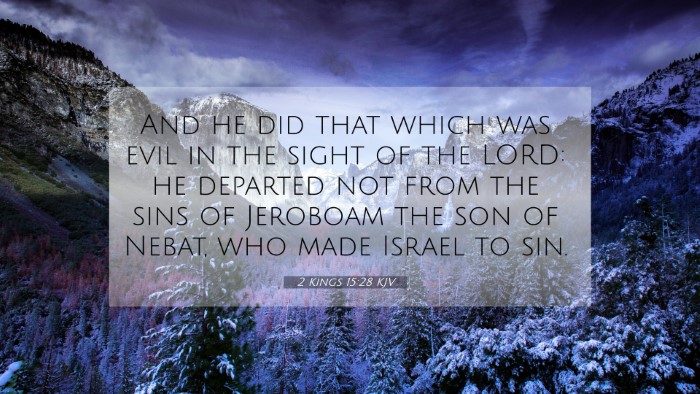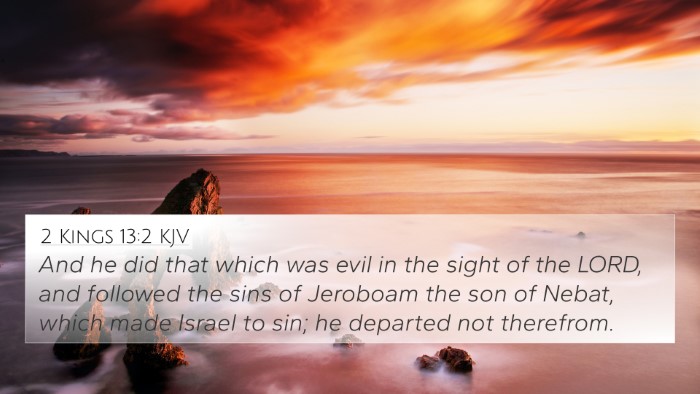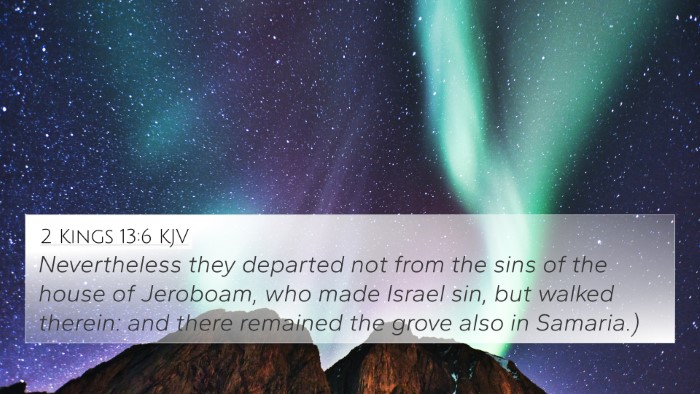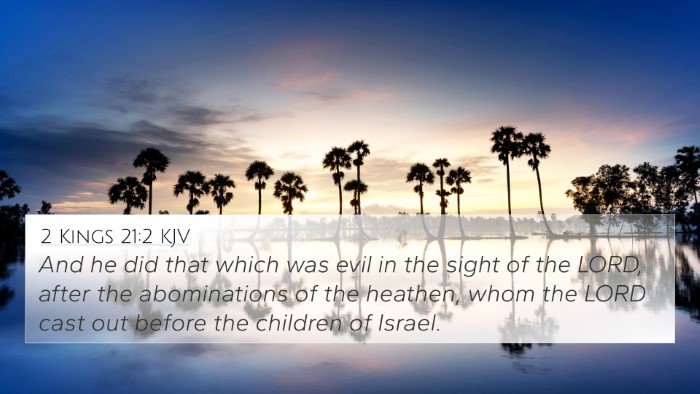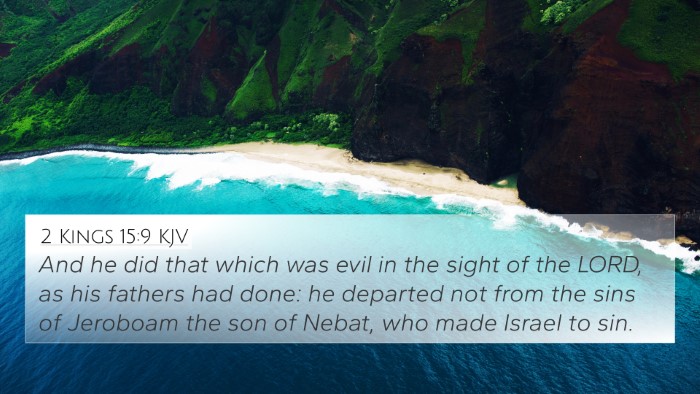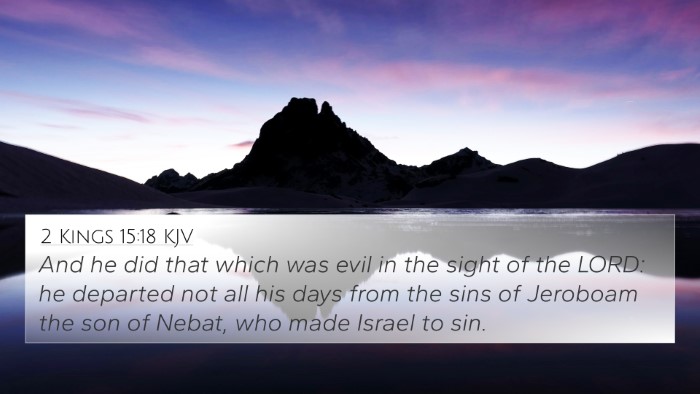Understanding 2 Kings 15:28
2 Kings 15:28 introduces us to the reign of King Pekah, who ruled over Israel during a turbulent period characterized by instability and infidelity to God. The essence of this verse can be summed up as a reflection of the moral and spiritual decline of Israel, influenced by a succession of unfaithful leaders.
This verse reads: "And Pekah the son of Remaliah reigned over Israel in Samaria twenty years, and did that which was evil in the sight of the Lord; he departed not from the sins of Jeroboam the son of Nebat, who made Israel to sin."
Historical Context
Pekah ruled during the 8th century BC in the northern kingdom of Israel. His reign lasted for twenty years, which is significant in demonstrating the instability of leadership in contrast to the united monarchy under David and Solomon. The division that began with Jeroboam has profound implications on the spiritual state of the nation.
Comparative Analysis and Interpretation
According to Matthew Henry's Commentary, this verse exemplifies the consistent pattern of sinning against God that characterized Israel's kings, particularly following Jeroboam's example. Jeroboam’s actions, which initiated idol worship, became a legacy that his successors continued, leading the entire nation away from true worship.
Albert Barnes highlights that Pekah’s evil deeds are a direct violation of the covenant established by God with Israel, putting the nation at odds with divine expectations. This notion emphasizes the repeated warnings delivered through the prophets during these tumultuous times.
From Adam Clarke's Commentary, it is observed that the reference to "the sins of Jeroboam" serves as a symbol for turning away from God and embracing idolatry. This serves as a critical instruction on spiritual vigilance and the consequences of leading others into sin.
Cross-References for 2 Kings 15:28
- 1 Kings 12:28-30 - Discusses Jeroboam's idolatry and its origins.
- 2 Kings 10:29 - Refers to the continuation of Jeroboam's sins.
- Hosea 5:11-13 - Describes Israel's reliance on foreign alliances and its eventual downfall.
- Amos 5:25-27 - Speaks of God's rejection of Israel's worship due to their sins.
- Micah 6:16 - Mentions the iniquities followed by Israel that led to judgment.
- Isaiah 7:1-2 - Warns about the raids of Israel by foreign nations during Pekah's reign.
- Jeremiah 3:6-10 - Reflects on Israel’s unfaithfulness and the call to return to God.
Thematic Connections
The themes of leadership, idolatry, and divine judgment run deeply through this text, providing significant lessons for contemporary believers. Cross-referencing Biblical texts of this nature allows believers to explore the myriad connections between the actions of historical figures in Scripture and their implications for personal faith and community behavior today.
Application for Today
This verse serves as a reminder of the impact of leadership on a community’s spiritual health. The legacy of sin established by previous leaders, as illustrated in the life of Pekah, warns us to remain vigilant against complacency in faith. It teaches us the necessity of returning to God and seeking genuine repentance, as failure to do so can have severe repercussions not only for individuals but also for nations.
Conclusion
In summary, 2 Kings 15:28 encapsulates a critical period in Israel's history, showcasing the lasting influence of leadership failure and the persistent call to faithfulness. As we engage with this text, let it encourage us to diligently seek the Lord and inspire holistic growth both personally and within our communities.
Recommended Tools for Bible Cross-Referencing:
- Bible Concordance: A comprehensive tool for exploring connections between verses.
- Bible Cross-Reference Guide: Helps identify related scriptures for deeper understanding.
- Cross-Reference Bible Study: Offers structured methods for thematic study.
- Bible Reference Resources: Compilations of resources to aid in academic and personal studies.
- Bible Chain References: Guides for following thematic links throughout the Scripture.
